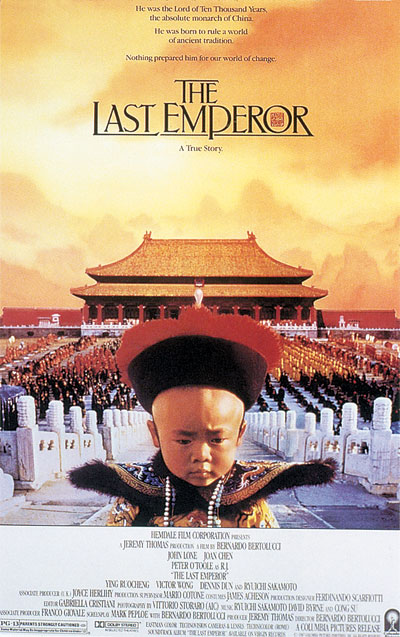The big picture
 |
|
Movie 'The Last Emperor' sold well on their universal appeal.[Photo provided to China Daily] |
Another movie that got downright hostile feedback on its home turf is Cloud Atlas, directed by the Wachowski siblings and Tom Tykwer, a German. The original is by an English novelist, who set one of the six tales in Asia. The South Korea-related plot is not as location specific as San Francisco because it is set in the future and the use of "yellow face" for the male character drew criticism from Asian Americans. But the movie gives the impression it is not about one country, but about the future of mankind.
|
|
| Nibbling away at food waste |
|
|
| Standing debate |
|
|
| Setting the scene for success |
Like Life of Pi, Cloud Atlas was better embraced in China - mostly because the concept of reincarnation, which is embedded in the structure of the mammoth saga, went down smoothly with the Chinese.
Even though most Chinese filmgoers, who tend to be young, may not believe in Buddhism, the idea that a Caucasian man can be reborn as a black woman is not shocking at all. As a matter of fact, the central character in Mo Yan's novel Life and Death Are Wearing Me Out repeatedly finds another life as an animal, not even as a human.
For a film, going global can take many roads, and one of them is a global story. Of course, a geographically specific tale, say, set in a remote village where people speak a dialect nobody outside understands and customs are so esoteric as to clash with everything we know as acceptable, may also find wide resonance as basic emotions are universal.
Most Chinese movies that have so far gained a global, albeit limited, audience are sold on the strength of specificity and audiences outside China take to them because they are so different and, shall I say, exotic.
In an era of growing globalization, stories that involve more than one country are a natural outcome. If Pi's family did not travel outside India but ran into a boat accident on the Ganges, there would be no French chef, Chinese sailor or Mexican fishermen. It would be a purely Indian tale, at least on the surface, with a narrower appeal.
Now, global stories on screen are nothing new. Both Hollywood and European cinema actually excel in this. Gladiator, the 2000 Oscar winner, is about ancient Rome, but it stars an Australian actor and everyone in the movie speaks English.
The 1974 version of Zorro, which was imported into China and screened to great acclaim, is a French-Italian co-production, starring French heartthrob Alain Delon who speaks English in the version I saw. (It could have been dubbed into multiple languages, as was the norm with European co-productions of that time.) Unbeknownst to us, the story was set in California before it was part of the US. So, if you're a purist, you would agonize over such racially blind casting and myriad inaccurate details.
For more X-Ray, click here



















